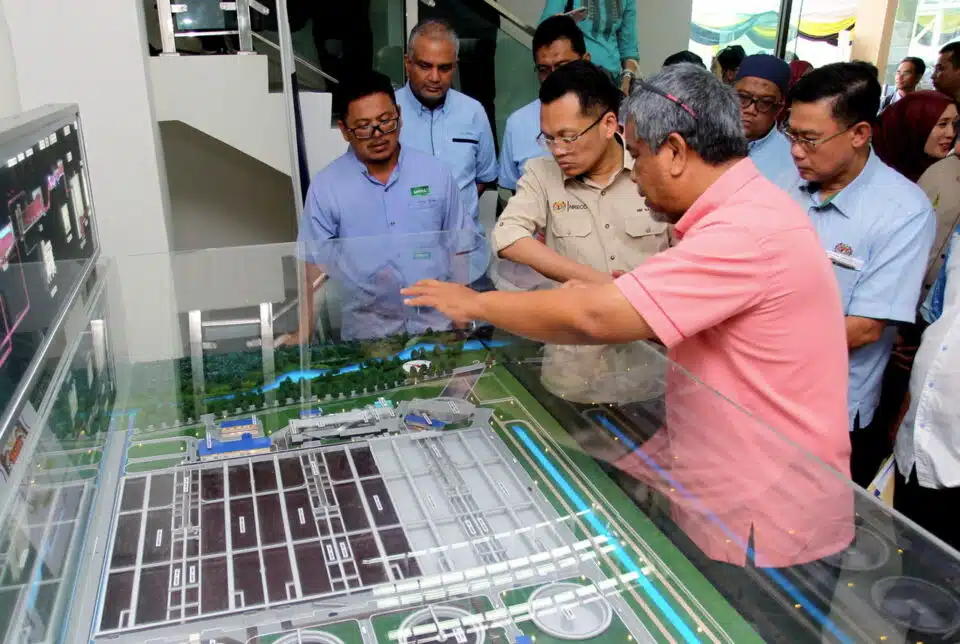BATU GAJAH, Oct 7 — The Ministry of Natural Resources, Environment, and Climate Change (NRECC) is targeting 95 per cent of Regional Sewage Treatment Plant (RSTP) services in major cities in the country by 2030.
Its minister Nik Nazmi Nik Ahmad said this is in tandem with the country’s policy of developing the sewerage sector in line with the development pace and in meeting the people’s expectations.
He said it also aligned with Sustainable Development Goal Number 6 (SDG 6).
“Therefore, to achieve the goal of SDG 6, the Federal government has provided a large allocation to ensure the planning of modern and efficient sewerage infrastructure in stages in the country.
“It is the basic need for the people to live a more conducive life based on the principles of social justice. This is in line with one of Malaysia Madani’s strategic thrusts, which is to ensure the well-being of people,” Nik Nazmi said when opening RSTP Papan 2 in Pusing today.
The construction of a perfect sewage treatment system and upgrading existing treatment plants that are ineffective, small in size and not cost-effective are among the actions being implemented to achieve the level of effluent that complies with stipulated standards and meets the needs of the country’s population increase.
The development of sewerage services in high-density urban areas is based on the regional concept of building sewage treatment plants with an appropriate scale to meet the needs of larger communities.
“This method can increase efficiency through economy of scale while reducing the construction of small plants in new development areas,” he added.
Meanwhile, at a press conference later, Nik Nazmi said the RSTP Papan 2 project, costing RM453 million, covers a catchment area of 195 square kilometres involving three main areas, namely Ipoh City, Gunung Rapat and Menglembu.
“This project can benefit approximately 600,000 residents and can accommodate up to 900,000 residents. The total population for the entire catchment area is estimated to increase to 1.5 million by 2045,” he said.
The construction of the plant will not only reduce the problem of the existing sewage treatment system, which is small and inefficient but will also enable connection to the sewer pipe network system from the new development area.
Meanwhile, regarding the current haze situation in the country, Nik Nazmi said he would clarify in the Dewan Rakyat this Monday (October 9).
— Bernama





